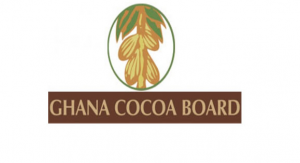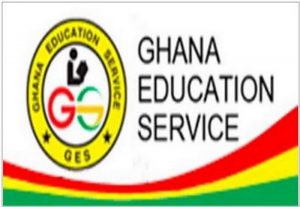A new study conducted by the Institute for Energy Security (IES) has cast further illumination on the implications of the ongoing stagnation in new oil and gas field development that Ghana is currently suffering from. The study, released last week warns that the refusal of Eni Ghana Exploration and Production Limited (ENI) to accede to a directive by Ghana’s Ministry of Petroleum Resources to collaborate with Springfield E&P (Springfield) to unitize the Sankofa and Afina oil and gas fields which they respectively own could cost Ghana as much as US$6 billion in revenues accruing to the state.
This is just one of the two bottlenecks Ghana’s upstream oil and gas industry is faced with in regard to new field development. The other is the decision by Aker Energy to seek a new equity investor in its efforts to develop its planned Pecan oilfield, which will further delay commencement of production from what is billed to ultimately be the country’s biggest oilfield so far. Under the original schedule the field would have started producing by the end of 2020 or by the first half of this year at the latest. However, field development has not even started as at yet and with Aker’s latest decision, emanating from financing challenges, construction of the requisite infrastructure may not even start before the end of the year.
Therefore, the commencement of production from a unitized Sankofa/Afina field presents Ghana’s best hope of having a fourth oilfield up and running before a string of annual Eurobond issuances start falling due for amortization in late 2023. But the IES study reveals that while the State stands to derive upwards of US$8.4 billion from the unitization of the Sankofa and Afina fields, as opposed to US$2.065 billion that it would derive from the production from the Sankofa field alone, assuming no incidence of unitization. Yet there is still no certainty that the preferable first scenario will play out. Government has accommodated Eni’s resistance so far, setting new deadlines for unitization when an old one expires without action being taken. The latest deadline from government is May 2022, but no progress has yet been made towards meeting it.
Eni is disputing the premise for government’s directive that the two companies unitize their respective fields, which is that they are technically interconnected, a situation established by drilling conducted by Springfield and confirmed independently by analysis of the resultant data by the Ghana National Petroleum Corporation.
The Institute’s analysis asserts that unitization would lead to maximum economic benefits for the State, and for all the parties involved in the production of the unitized accumulation.
These benefits would be derived from, amongst others, sharing of development facilities, which naturally drives down costs and ultimately improve economic returns. The benefits to the State are in the form of significant reduction in operational and capital costs of the unitized fields, as well as increases in royalties, taxes, Additional Oil Entitlement (AOE), fees and levies asserts the IES report.
It says “With the unitization concept, the unitized area, usually a reservoir is treated as a single unit for development purposes. It is as if the separate leases and licenses are merged into one single lease or license, with a single Unit Operator appointed to manage the development of the field.”
In April 2020, the Energy Ministry in a letter signed by the then Minister, John Peter Amewu, directed the two companies to unitize their fields. The decision resulted from series of engagements and analysis of post-drill data, which showed that the Afina discovery in the WCTP-2 belonging to the two companies field in the OCTP contract areas were one and the same. A year after the directive, the two companies have not complied.
The study states that, Ghana’s laws make provision for the unitization because it prevents physical waste, prevents economic waste, and protects correlative rights of the parties to the contract areas. Actually, Ghana’s laws on the issue of unitization conform with predominant laws in many other major oil producing jurisdictions around the world. The Institute’s review of unitization laws in other countries show that majority of countries including Azerbaijan, United Kingdom, Egypt, Brazil, Nigeria, and Ecuador have enacted laws and regulations governing unitization processes which are very similar to the law in Ghana. The practice is usually for voluntary unitization, with the government having the power to enforce processes for unitization if voluntary unitization fails.
However, Eni does not agree with the technical findings of interconnection of the two oilfields.
The study reveals that per IES’ investigation, the reason for the inability of the two companies to comply with the government’s directive is primarily due to Eni’s rejection of government’s position on the matter, by claiming that in their opinion there is no dynamic or hydrocarbon communication between the Afina discovery and the Sankofa field.
However, the Institute’s review of the Petroleum (Exploration and Production) Act, 2016 (Act 919) and the Petroleum (Exploration and Production) (General) Regulations, 2018 (L.I 2359), the laws that regulate unitization in Ghana, show that dynamic or hydrocarbon communication is not a requirement for unitization; it can be insisted on simply if the state stands to gain without major loss to the parties required to unitize their respective fields. Eni though asserts that it would be a major loser.
Indeed, Eni has been arguing, over the past year that it should not be compelled to unitize its already operating field with Springfield’s which it asserts has not been fully confirmed.
Instructively the Government of Ghana has been treading cautiously because Eni is creating the impression that its unitization directive aims to deliberately favour Springfield, the first Ghanaian owned firm to make a major discovery, but which lacks the financial and technical capacity to bring it on line. Eni’s argument cleverly aims to imply (without stating outright) that government’s decision seeks to solve Springfield’s capacity dilemma since unitization, with Eni as the field operator would put the onus on the Italian firm to provide the technical expertise and most of the financing. Indeed, it is instructive that the comparison of anticipated revenues with and without unitization assumes no revenues from Springfield’s Afina field if unitization is not done.
Thus, even if Ghana wins in legal terms, Eni’s protests could cost Ghana the confidence of the international oil exploration and production community which it needs to uncover and exploit its hydrocarbon resources, especially if it wins on the basis of maximizing benefits to the state rather than actual interconnection of the two fields.
Indeed, government’s insistence on the unification and the terms it is proposing, despite the protestations of the Sankofa field, appears to be drawing the ire of the foreign upstream oil and gas industry, which sees it as an attempt to shortchange one of theirs to the unfair benefit of an indigenous operator.
While this assertion is questionable, even local industry analysts are beginning to fret that the circumstances of the situation holds the potential to discourage direly needed foreign investment into Ghana’s nascent, but hugely promising industry.
Indeed, the Executive Director of the Institute for Energy Security (IES), Nana Amoasi VII. warns that Ghana could thus conceivably be the overall loser if the ongoing impasse between ENI Ghana Exploration and Production Limited, and Springfield Exploration ends up in the International Court of Arbitration.
Foreign industry experts assert that the Ghanaian government might be over reaching in making the nascent oil industry serve its interests. For quite some time the general political narrative cut through the industry somewhat noiselessly after, in early May 2020 Ghana’s (then) Energy and Petroleum Minister John Peter Amewu suggested that the Sankofa oil field and the Afina oil discovery should be unified into one joint project.
While many industry observers find it absurd that the Energy Minister has the competence to decide which fields should be unified this, however, is completely legal in Ghana following several recent regulatory changes – in 2016 the Ghanaian government introduced this clause so as to streamline new projects. Technically, Ghana’s Energy Minister can also force reticent sides to acquiesce to its intent with the proviso that the top-down decision can only be done if both plays are appropriately appraised.
But apart from the fact that Sankofa’s shareholders totally oppose government’s ruling on unification of the two oilfields, foreign industry operators also assert that the Afina discovery should be officially confirmed as a commercial one, which has not happened because potential partners in developing the field have not announced the results of their due diligence.
The Afina-1 discovery well was spudded in September-October 2019 to a total depth of 4085 meters and wielded a light oil play with a gross thickness of 65 meters. Afina was the first-ever well drilled by Springfield Exploration and Production, a Ghanaian company that took a 80 percent operatorship role in the West Cape Three Points Block 2, with the remaining stake going to Ghana’s national oil company GNPC. Upon the discovery, Springfield stated that Afina’s oil-in-place reserves are assumed at around 1.5 billion barrels, with a further 3 billion barrels of undiscovered potential, making it a superb start to the company’s drilling history (provided the discovery is commercial though). In contrast to Afina, the 0.5 billion barrels Sankofa has already been producing since 2017, eight years after its initial discovery by Vitol’s Ghanaian upstream branch.
Government’s assertive view of how it would prefer its offshore crude production to develop has also generated another controversy. Although the Energy Ministry wants ENI to operate the prospective Sankofa-Afina field, however, it would be Springfield that gets the largest stake as Afina’s nominal reserves are higher, despite its commercial size and viability remaining unconfirmed. Mirroring a 54.5-45.5 percent split between Afina and Sankofa, ENI would receive only 20.2 percent of the future joint project, Vitol would be left with 16.2 percent whilst Springfield would get 44.7 percent.
Foreign industry experts are suggesting that Ghana ought to be very careful in how it treats the Sankofa/Afina issue because it carries enormous reputational risks for future offshore projects. Throughout 2020 there was no exploration activity in Ghana’s offshore and the restoration of drilling is dependent on the operator of Sankofa, ENI, going forward with its plans in the Tano Basin.
Moreover, Sankofa might be perceived as a pioneering project, being the first non-associated gas field in Ghana’s offshore and has been playing an instrumental role in the nation’s shedding some of its unnecessary hydrocarbon imports. Using its gas production for electricity generation at an assumed cost of $6.6/mmBtu (with the involvement of the World Bank), Sankofa has doubly benefited Ghana by saving its currency reserves and by supplanting polluting oil products as sources of energy.
Ghana’s other bottleneck with regards to significantly increasing its revenues from oil exports through new fields coming on stream, derives from Aker Energy’s financing challenges – it is now facing a major delay in the rollout of its oil field developments as Aker Energy is looking to sell part of its 50% participating interest in the Deepwater Tano Cape Three Points (DWT/CTP) block in Ghana, which includes the Pecan development project.
The Pecan project was supposed to be Ghana’s fourth operational oilfield after the two operated by the Jubilee partners comprising Jubilee itself and TEN, and the Sankofa field operated by Eni. It was originally expected to be up and running by 2021 at the latest and was expected to be the country’s largest producing field to date, dwarfing all of its predecessors.
However initial delays resulted from Aker’s inability to satisfy the Ministry of Petroleum Resources and the Petroleum Commission with its proposed Plan of Development, which consequently had to be revised twice. But since its revised PoD was finally approved, financing became a problem as COVID 19 generated a crude oil price crash on the global commodity markets.
The need to secure a new equity partner will inevitably delay the development of the project considerably. This is bad news for Ghana which had been hoping that its equity share, taxes and royalties from the project would contribute significantly to enhancing its negotiating position when it seeks to refinance a string of annual Eurobond issuances maturing from 2023. It now seems certain that even the first phase of the Pecan field will not be up and running – and may not even be in development – when those refinancing negotiations commence expectedly next year.
This will mean tighter terms for refinancing at least the first couple of Eurobond maturities.
After the COVID-19 wreckage, the Norwegian operator has struggled to come up with the funding for the Pecan development, which it sounded so passionate about just 18 months ago.
Aker Energy’s demonstrated passion to fast track the development project led to the Ghanaian government’s amendment of Petroleum Agreements concerning the DWT/CTP and the South Deep Water Tano (SDWT), an amendment which significantly reduced the state’s share of the partnership and snuffed out the involvement of GNPC Explore, a company that was set up to build operating capacity of the state hydrocarbon company GNPC.
But Aker Energy appeared to walk the talk. As far back as February 2020, the operator had entered into a Letter of Intent (LOI) with Yinson Holdings Berhad to award a bare-boat charter and an operations and maintenance contract for a floating, production, storage and offloading (FPSO) vessel at the Pecan field, following a competitive tender. The plan was that the contracts would have a firm duration of ten years followed by five yearly extension options exercisable by Aker Energy as operator on behalf of the license partners. Once developed and installed, the FPSO will be located over and connect to the state-of-the-art subsea production system located at approximately 2,400 metres below sea level.
Now, all of that enthusiasm has been considerably challenged by the economic downturn of the last one year. Recently, Aker has been looking at the possibility of developing the field in phases; instead of producing from one central installation the company is considering the option of developing it in parts, starting with a floating production, storage and offloading unit (FPSO) in the southern part of the block and then adding a second unit in the northern part of the property subsequently This would substantially reduce the project’s break even cost and make a positive final investment decision possible sooner than later.
Aker Energy’s other partners in the DWT/CTP block are Lukoil (38%), Fueltrade (2%) and Ghana National Petroleum Corporation (10%).
All this is happening at entirely the wrong time. Ghana has got three oil and gas fields up and running over the past decade but since the latest field – the GyeName Sankofa field commenced production in 2017 – little progress has been made towards developing a fourth field. This is despite two major discoveries – each bigger than the previous one and both several times the size of the three already operating fields put together – having been announced.
Government has been holding out to push Aker into accelerating development of the field in one go that the State can start earning revenues before the annual Eurobonds issued by the Mahama administration from 2013 start falling due for amortization. But faced with the possibility that Aker may decide to suspend all field development activities until global market prices pick up, government is relenting somewhat on its demands as to how Aker should go about developing the field.
But Aker is refusing to be rushed. Said one company official on strict condition of anonymity: “When we were ready to press ahead government held us back. If it had not, Ghana would have been on the brink of getting a new oilfield by now, despite the fall in global market prices for crude oil. By delaying us to press home its demands government has ultimately shot itself in the foot.”
To be sure though government has the backing of most local stakeholders including public policy think tanks who believe government called Aker’s bluff by insisting on terms that are best for the State. However, this is coming at great cost as Ghana now faces the prospect of securing refinancing for the impending maturing Eurobonds without even a certain timeline for revenues from the Pecan field as part of its negotiating hand.
Ghana Crude Production vs Exports in 2017-2020 (in ‘000 barrels per day).
The swift production increases of 2017-2018 gave way to stagnation that was rendered even more apparent by the consequences of COVID-19 (see Graph) Currently Ghana has two oil producers – Tullow with its Jubilee and TEN fields, and ENI with Sankofa – totaling around 190,000-200,000 barrels per day recently.
The output volumes are unlikely to increase significantly as there seems to be no other project coming up in the pipeline. The Pecan field, operated by Aker Energy, might have been the one to supplement the Ghana’s production portfolio, however overall delays in its development will postpone its commissioning, all the more so as Aker now wants to split it in two separate phases for the field’s northern and southern part and is seeking a new equity partner. Should there be any output additions over the course of 2021-2025, they would come from Tullow’s Greater Jubilee production ramp-up and not new projects.
None of this augers well for Ghana’s upstream oil industry’s growth despite the huge prospects both onshore and offshore. There is little doubt as to the country’s hydrocarbons endowment. Bur recent regulatory developments are curbing the enthusiasm of the international oil companies to explore for new fields right now and even more worrying is curtailing their willingness to spend direly needed capital on bringing out of the ground what has already been discovered.







